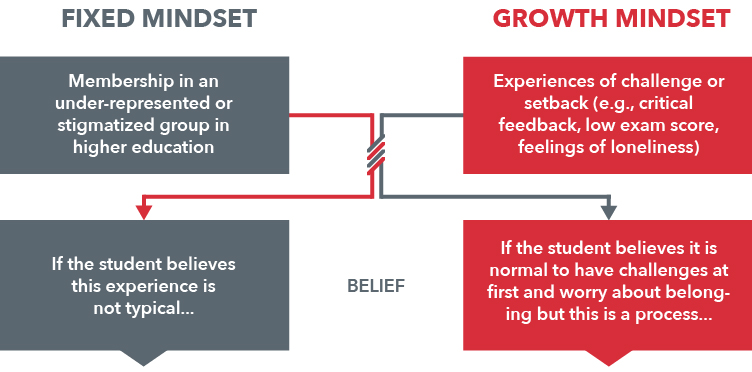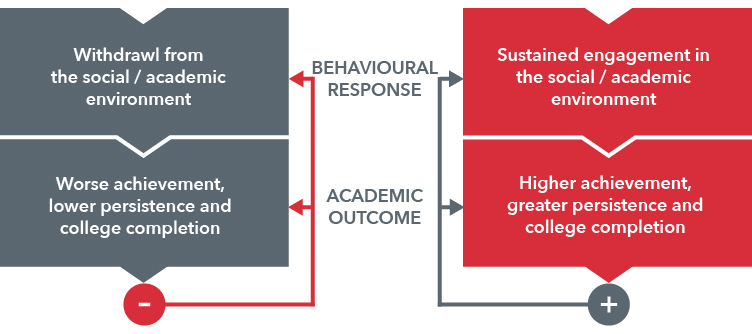Belonging at UNB
Small interventions, huge growth
The goal of the Belonging at UNB project is to introduce research-based interventions that improve the first-year student experience and the retention of underrepresented student groups at UNB.
Research shows that common adversities faced by all university students are interpreted by underrepresented groups as uncommon and unique to them, which they see in turn as confirmation of their lack of belonging. This effect, if left unaddressed, leads to academic underperformance and an increased risk of leaving university before completing their program.
The Belonging at UNB initiative harnesses the power of small interventions to influence feelings of belonging and growth to increase persistence and retention among underrepresented and minority student groups.
Brief and effective interventions
Students can learn that most adversities are common, routine and that with time and the right kind of effort, they can be overcome.
Small interventions have the power to target attitudes and beliefs that influence how a student interprets and reacts to the presence to setbacks and challenges. These interventions are built on strong experimental evidence and represent efficient and effective means of improving core academic outcomes, such as persistence and retention for underrepresented student groups.
Fixed vs. growth mindset
The fixed mindset pathway shows what happens when a student believes that the challenges they are facing are uncommon and unique to them. This causes a student to withdraw from their academic and social environment and prevents them from addressing their challenges in a constructive way.
The growth mindset pathway shows what happens when a student believes that their challenges are routine and temporary. These beliefs encourage sustained engagement and effort to address these challenges and are more likely to result in improvement and increased achievement.



Changing mindsets
For university students, it’s normal to worry at first about whether they belong or can succeed in a new school. First-year students face a range of challenges such as:
- making friends
- feeling intimidated by instructors
- being worried about being evaluated
- feeling excluded by peers
- feeling homesick
These challenges do not mean that a student does not belong but that with time and effort, they can overcome those challenges and develop strong relationships, secure a sense of belonging in the university community and succeed academically.

